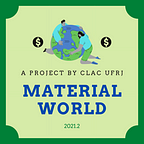Brazilians celebrations as an excuse for consumption
In capitalism there are multiple reasons that contributed to the existence of itself, among them we can quote the marketing that is an exceptional tool to attract consumers. The people are confronted by advertisements that convince them to buy products that aren’t needed, that they simply have it or that they will not use.
This situation is exemplified by celebrations and holidays. Many of them (such as Christmas Day, Mother’s Day, Father’s Day, Children’s Day and Valentine’s Day) encourage people to consume in order to demonstrate their feelings, while in fact this is an excuse to hide the actual reasons: financial gain and moving the wheel of economy. What Brazilian has never heard on TV the famous song from a store that starts playing at the end of October: “Já é natal na Leader Magazine” (It’s already Christmas in Leader Magazine)?
This manipulation is so deep that it can make people feel embarrassed when they do not buy gifts to give to a dear person or make a person feel sad and forgotten, because they didn’t receive a gift, while in fact, giving or receiving gifts shouldn’t be a criteria for expressing feelings for someone.
Another celebration in Brazil that is an example of capitalist behavior is the Feast of Saint John or Festa Junina, that used to occur only in the month of June and now too occur over the months of July and August being called Festa Julina and Festa Agostina. The reason to extend the festival for other months is to move the economy by means of typical food, drinks and dance, since the official date for the celebration is on June 24th.
Nonetheless that are some examples of how many Brazilian celebrations became more than a cultural tradition, now they are considered a source of encouragement for the rampant consumerism.
Developed by Amanda Fernandes, a biology teacher from Duque de Caxias — RJ.
